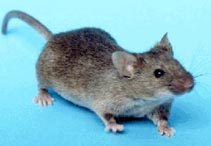Want to live forever?
by Lifeboat Foundation Scientific Advisory Board member David Brin, Ph.D.
Looking for the Fountain of Youth
Recent scientific results have fired hopes for a dramatic increase in human life span.
For more than a decade, studies suggested an approach to slowing the ageing timer. The method that appeared to work best has been to keep experimental subjects hungry. By providing nutritious but restricted diets, or in some cases by delaying sexual reproduction, researchers as much as doubled longevity in rodents, yeast, flies and several other species. As you’ve expect, human enthusiasts began eagerly applying this at home — limiting their caloric intake or else forbearing sex — hoping to extend their own years through judicious abstinence. It may seem a hard tradeoff, abjuring some of life’s pleasures in exchange for more years. But some think it worthwhile.
According to a report in the November 23, 2002 edition of the journal Science, such tradeoffs may not be necessary, after all. Stewart Frankel of Yale University reported that an enzyme — Rpd3 histone deacetylase — may be key. Flies with genetic mutations that resulted in lower levels of the enzyme lived 33% to 50% longer than normal, emulating the results of reduced caloric intake. “If you decrease the level of the enzyme without eating less, you still get the life span extension”, Frankel told Reuters. Eager companies hope to find drugs that might emulate these results in humans.
It sounds terrific — more high quality life span, while eating whatever you like. What a deal!
Unfortunately, it may not be so easy.
First, some perspective. Do all animal species have built-in expiration timers? Some fish and reptiles may not, but mammals seem to have an inner clock that goes off after an individual passes his or her species “middle age” triggering a gradual descent toward frailty, then death.
Mice and elephants lead very different lifestyles — one ponderous, the other manic — yet rodents and pachyderms share the same pervasive pattern of aging. Individuals who survive the perils of daily life, from disease to predators, inevitably begin declining after finishing about half a billion heartbeats. Elephants live much longer than mice, but their hearts also beat far slower, so the total allotment stays remarkably similar. Few mammals live to celebrate their billionth pulse.
No one yet knows what this coincidence signifies. Moreover, the program isn’t rigid. As we’ve seen, researchers have used hunger to double the senescence timer in mice. Unfortunately, humans who try caloric restriction find no similar benefit. Beyond a slight increase in vigor and some reduction in heart disease, results have been disappointingly slim.
This should come as no surprise. Across time, many civilizations fostered ascetic movements, in monasteries and colonies where dedicated individuals lived spartan, abstemious lives. After four millennia of these experiments, wouldn’t we notice swarms of spry, 200-year old monks capering across the countryside? There may be ample reasons why such simple measures work in animals, but not us.
Remember that billion heartbeat limit that seems to confine all mammals, from shrews to giraffes? It’s a pretty neat correlation, till you ponder the chief exception.
Us. Most mammals our size and weight are already fading by age twenty, when humans are just hitting their stride. By eighty, we’ve had about three billion heartbeats! Quite a bonus. How did we get lucky?
Mice and elephants only get 1 billion heartbeats. David Brin gets 3 billion.
Biologists figure our evolving ancestors needed drastically extended lifespans, once humans came to rely on learning rather than instinct to create adaptable, tool-using societies. Two decades weren’t enough for a man or woman to amass expertise, or pass complex culture to new generations. We had to live longer. Chimps and other apes share some of this lifespan bonus, getting about half as many extra heartbeats. So the adjustment must have begun millions of years ago.
Evolution has already slowed human ageing. In becoming mammalian Methuselahs, we’ve probably incorporated all the easy stuff, including the chemical effects that researchers recently stimulated in mice, through caloric restriction.
I’d rather lose this bet! I’m more hungry for years than fatty foods. But alas, it seems that little more longevity will be achieved by simple asceticism, or by pharmaceutically simulating drastic life style adjustments. Good diet and exercise may help more of us get our programmed eighty or ninety years. But to gain a lot more — the same doubling that we see in hungry mice — we’ll have to work harder. It may require deciphering every part of life’s blueprint, a project taking generations.
Disappointed? Well, be grateful for the triple heartbeat bonus you already get. And work for the next generation. They have always been the true immortality.


